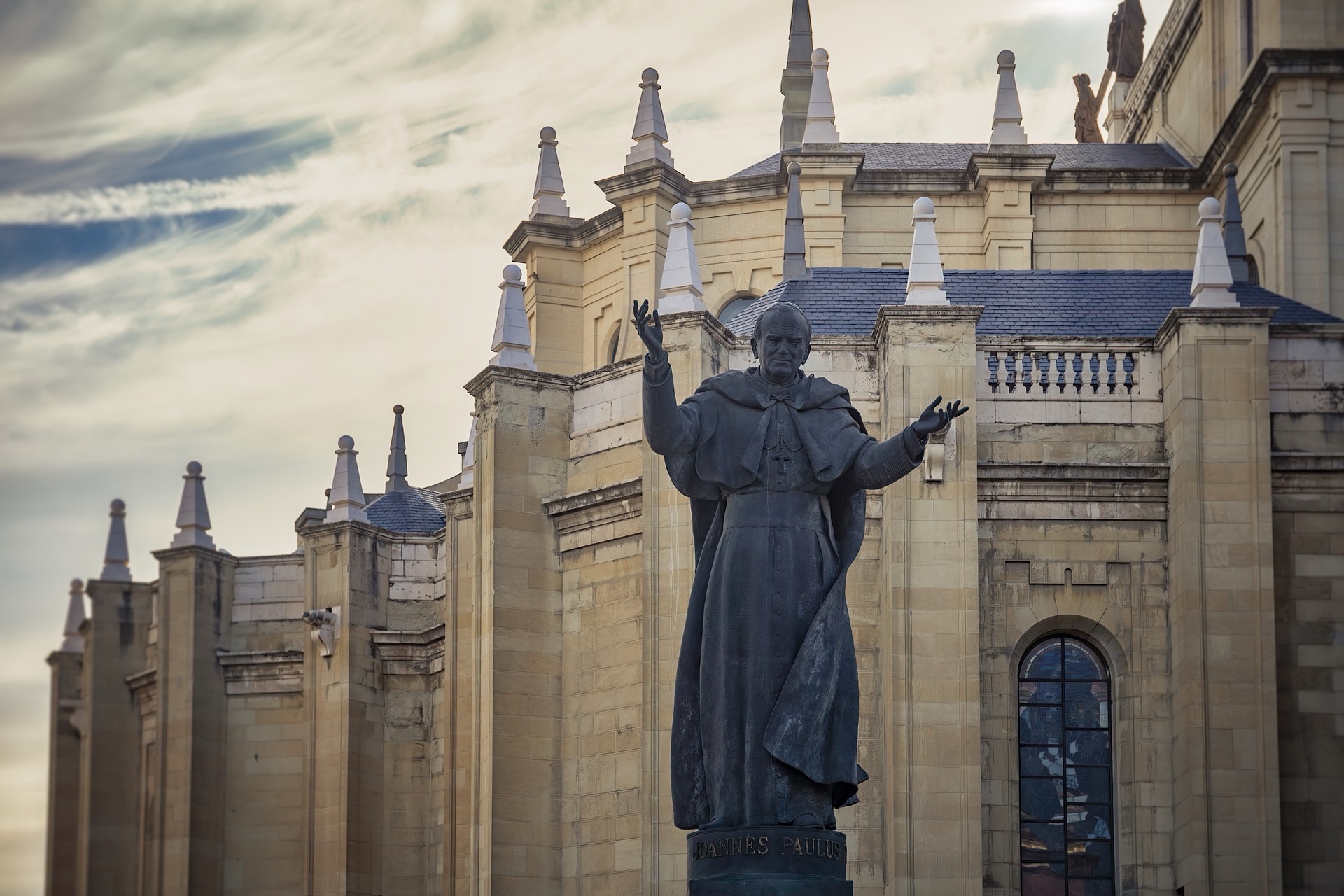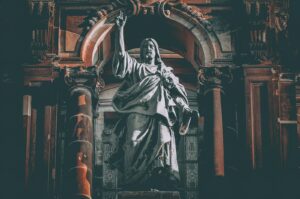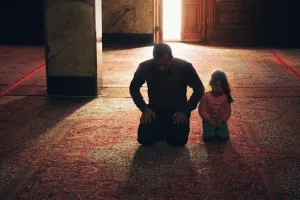The divide between Catholicism and Protestantism is one of the most significant and long-standing schisms within Christianity. While both groups identify as Christian, they differ in their interpretation of Christian theology, practices, and traditions. The roots of the divide can be traced back to the Protestant Reformation in the 16th century, which was initiated by figures like Martin Luther, John Calvin, and Huldrych Zwingli, who sought to reform perceived abuses and theological errors within the Roman Catholic Church. This event led to the birth of various Protestant denominations, including Lutheranism, Calvinism, Anglicanism, and later movements like Methodism and Baptism.
Despite sharing fundamental beliefs such as the Trinity, the divinity of Jesus Christ, and the authority of the Bible, there are significant theological, ecclesiastical, and cultural differences between Catholics and Protestants. In this article, we will explore these differences, covering topics such as authority, salvation, sacraments, the role of Mary and the saints, church leadership, and worship practices. By understanding these distinctions, we can gain a deeper appreciation of the rich diversity within the Christian tradition.
1. Authority: Scripture vs. Tradition
One of the most fundamental differences between Catholics and Protestants is their view on authority within the Church. This issue is central to the theological divide and was one of the driving forces behind the Protestant Reformation.
Catholics: Scripture and Sacred Tradition
In Catholicism, the authority of the Church comes from both Sacred Scripture (the Bible) and Sacred Tradition. Catholics believe that divine revelation comes through these two sources, which together constitute the Deposit of Faith. According to Catholic teaching, Sacred Tradition refers to the teachings of Jesus Christ that were passed down orally through the Apostles and their successors and that are preserved by the Magisterium (the teaching authority of the Church).
For Catholics, the Bible and Tradition are inseparable, and both are seen as equally authoritative. This belief is based on the idea that the Holy Spirit guides the Church in interpreting both Scripture and Tradition, ensuring that the teachings of the Church remain faithful to Christ’s original message.
The role of the Magisterium, composed of the Pope and the bishops, is to interpret and teach both Scripture and Tradition. The Pope, as the successor of St. Peter, is believed to hold a special place of authority within the Church. The doctrine of papal infallibility, defined during the First Vatican Council in 1870, asserts that the Pope is infallible when making official pronouncements on matters of faith and morals. This authority to teach and interpret is a central aspect of Catholic ecclesiology.
Protestants: Sola Scriptura (Scripture Alone)
In contrast, most Protestants adhere to the principle of sola scriptura, meaning that the Bible alone is the ultimate authority in matters of faith and practice. Protestants reject the idea that Church tradition holds equal weight with Scripture and believe that the Bible is the sole infallible source of divine revelation. This belief arose out of concerns that Catholic tradition had added unnecessary and even unbiblical doctrines to Christian faith and practice.
Martin Luther, one of the key figures of the Reformation, argued that many of the Catholic Church’s teachings and practices were not grounded in Scripture. He emphasized that each believer has the right and responsibility to read and interpret the Bible for themselves, without the need for a hierarchical Church authority to mediate their relationship with God.
The doctrine of sola scriptura fundamentally changed the way Protestants approach theology and worship. Without the centralized authority of the Magisterium, different Protestant denominations developed their own interpretations of Scripture, which has led to the diversity of Protestant beliefs and practices seen today.
2. Salvation: Faith and Works vs. Faith Alone
Another central issue that divides Catholics and Protestants is the doctrine of salvation—how a person is saved and made right with God. The understanding of salvation differs significantly between the two traditions, particularly with respect to the role of faith, works, and grace.
Catholics: Faith and Works
In Catholic theology, salvation is a process that involves both faith and good works. Catholics believe that salvation is initiated by God’s grace, which is received through faith in Jesus Christ, but it also requires an active response from the believer in the form of good works, participation in the sacraments, and living a life of holiness.
Catholics do not believe that a person can earn salvation through good works alone, but they do believe that works are a necessary expression of genuine faith. In this view, faith without works is incomplete, as it does not reflect a true transformation of the believer’s life. James 2:26 is often cited to support this belief: “For as the body without the spirit is dead, so faith without works is dead also.”
The sacraments, particularly baptism, confession, and the Eucharist, are seen as important means of receiving God’s grace and growing in holiness. Catholics view these sacraments as channels of grace that help believers grow in their relationship with God and maintain their state of grace.
Protestants: Sola Fide (Faith Alone)
In contrast, most Protestant denominations hold to the doctrine of sola fide, meaning that salvation is by faith alone. Protestants believe that salvation is a free gift from God, received through faith in Jesus Christ, and that good works are the natural result of faith, not a means of earning or maintaining salvation. According to this view, faith alone is sufficient for a person to be justified before God, and good works are a byproduct of genuine faith.
This belief is rooted in the writings of St. Paul, particularly in passages like Ephesians 2:8-9, which states: “For by grace you have been saved through faith, and that not of yourselves; it is the gift of God, not of works, lest anyone should boast.” Protestants emphasize that salvation is entirely a work of God’s grace and that human beings cannot contribute to their own salvation through their efforts.
The Protestant Reformation was, in part, a response to what reformers saw as an overemphasis on works in Catholic teaching. Martin Luther famously rejected the Catholic practice of selling indulgences, which he believed undermined the biblical teaching of salvation by grace through faith.
3. The Sacraments: Seven vs. Two
The number and significance of the sacraments is another key area where Catholics and Protestants differ. The sacraments are visible signs of God’s grace, instituted by Christ, through which believers receive spiritual benefits.
Catholics: Seven Sacraments
In Catholic theology, there are seven sacraments, each of which is believed to be a means of receiving God’s grace:
- Baptism
- Confirmation
- Eucharist (Holy Communion)
- Penance (Confession)
- Anointing of the Sick
- Holy Orders (ordination)
- Matrimony (marriage)
The Eucharist, also known as Mass, is the central sacrament of Catholic worship, in which Catholics believe that the bread and wine become the actual body and blood of Christ through the process of transubstantiation. This belief is based on the words of Jesus at the Last Supper, when He said, “This is My body” and “This is My blood” (Matthew 26:26-28). For Catholics, the Eucharist is a re-presentation of Christ’s sacrifice on the cross, and participating in it is an essential aspect of Catholic faith and life.
The other sacraments also play vital roles in Catholic theology. For example, baptism is seen as necessary for salvation, as it cleanses the individual from original sin and brings them into the Church. Confession allows believers to be reconciled with God and receive forgiveness for sins committed after baptism.
Protestants: Two Sacraments (Or Ordinances)
Most Protestants recognize only two sacraments, which they refer to as ordinances: baptism and the Lord’s Supper (Communion). These are seen as symbolic acts of obedience to Christ’s commands rather than as means of receiving grace.
- Baptism: For Protestants, baptism is an outward sign of an inward faith and commitment to Christ. While some Protestant denominations, such as Lutherans and Anglicans, baptize infants, others, such as Baptists, practice believer’s baptism, meaning that only those who have made a conscious profession of faith are baptized.
- The Lord’s Supper (Communion): Protestants view the Lord’s Supper as a memorial of Christ’s sacrifice, rather than a literal transformation of the bread and wine. While many Protestants believe in Christ’s spiritual presence during Communion, they generally reject the Catholic doctrine of transubstantiation.
The reduced number of sacraments in Protestant theology reflects a broader rejection of the Catholic understanding of the sacraments as channels of grace. For most Protestants, salvation and grace come through faith alone, and the sacraments are seen as symbolic reminders of God’s promises rather than means of receiving grace.
4. The Role of Mary and the Saints
Another significant difference between Catholics and Protestants lies in their views on Mary, the mother of Jesus, and the saints.
Catholics: Veneration of Mary and the Saints
Catholics hold Mary, the mother of Jesus, in special veneration and believe that she plays a unique role in salvation history. Catholic teaching affirms that Mary was conceived without original sin (the Immaculate Conception) and was assumed into heaven at the end of her life (Assumption of Mary). Catholics do not worship Mary but venerate her as the Mother of God and as a powerful intercessor who prays on behalf of believers.
In addition to Mary, Catholics also venerate the saints, who are individuals recognized by the Church for their holiness and virtue. Catholics believe that the saints are in heaven and can intercede for those on earth, offering prayers on their behalf. This practice is rooted in the Catholic belief in the communion of saints, which holds that the Church consists of the faithful on earth, the souls in purgatory, and the saints in heaven, all of whom are united in Christ.
Catholics often pray to Mary and the saints, asking for their intercession, just as they might ask a fellow believer to pray for them. This practice of praying to the saints is supported by the belief that death does not separate the faithful from one another, and that the saints in heaven can still intercede for the living.
Protestants: Rejection of Veneration
Most Protestants reject the veneration of Mary and the saints, viewing it as unbiblical and as potentially detracting from the unique role of Jesus Christ as the sole mediator between God and humanity. Protestants believe that prayers should be directed to God alone and that there is no need for the intercession of the saints. 1 Timothy 2:5 is often cited in support of this view: “For there is one God and one mediator between God and men, the man Christ Jesus.”
While Protestants generally hold Mary in high esteem as the mother of Jesus, they do not believe that she was sinless or that she plays an active role in interceding for believers. Protestants also reject doctrines such as the Immaculate Conception and the Assumption of Mary, arguing that these beliefs are not found in Scripture.
5. Church Leadership: The Pope and the Clergy
Another key difference between Catholics and Protestants lies in the structure and leadership of their respective churches.
Catholics: The Papacy and Apostolic Succession
The Pope, as the Bishop of Rome and the successor of St. Peter, holds a central place in Catholic Church leadership. Catholics believe that Jesus appointed Peter as the leader of the Apostles and that the authority given to Peter has been passed down through the centuries to his successors, the popes. This doctrine of apostolic succession is fundamental to Catholic ecclesiology, as it ensures that the Church remains faithful to the teachings of the Apostles.
The Pope is seen as the Vicar of Christ on earth, with the authority to teach, govern, and guide the Church. The doctrine of papal infallibility, as mentioned earlier, asserts that the Pope is infallible when making official declarations on matters of faith and morals, though this power is rarely exercised.
Catholic Church leadership is hierarchical, with bishops, priests, and deacons serving under the Pope. Priests are responsible for administering the sacraments and providing spiritual guidance to their congregations, while bishops oversee dioceses and play a role in the governance of the wider Church.
Protestants: Decentralized Leadership
Protestantism, in contrast, has a more decentralized approach to church leadership. Most Protestant denominations reject the authority of the Pope and the idea of apostolic succession. Instead, Protestant churches tend to emphasize the priesthood of all believers, a doctrine that holds that every Christian has direct access to God through Christ, without the need for a hierarchical clergy.
As a result, leadership structures vary widely among Protestant denominations. Some, like the Anglican Church, retain a more hierarchical structure with bishops, while others, such as Baptist and Congregationalist churches, are more congregational in nature, with each local church governing itself.
In many Protestant denominations, clergy are seen as spiritual leaders and teachers rather than mediators between God and the people. Protestant ministers typically focus on preaching, teaching, and pastoral care, and they may or may not administer sacraments, depending on the denomination.
6. Worship Practices and Liturgy
The differences in theology and leadership between Catholics and Protestants are reflected in their worship practices and liturgies.
Catholics: Formal Liturgy and the Mass
Catholic worship is centered around the Mass, which follows a set liturgical structure that includes prayers, Scripture readings, a homily, and the celebration of the Eucharist. The Mass is highly structured and emphasizes the sacraments, particularly the Eucharist, as the central act of worship. The liturgical calendar, which includes seasons like Advent, Lent, and Easter, plays an important role in shaping Catholic worship throughout the year.
Catholic churches are often richly decorated, and the use of symbols, icons, and statues of Mary and the saints is common. The rituals and traditions of Catholic worship are designed to reflect the Church’s long history and connection to the early Christian community.
Protestants: Varied Worship Styles
Protestant worship varies significantly depending on the denomination, but in general, it tends to be less formal and structured than Catholic worship. Preaching is often the central focus of Protestant services, with an emphasis on the exposition of Scripture. The Lord’s Supper (Communion) may be celebrated weekly, monthly, or less frequently, depending on the denomination.
Many Protestant services feature congregational singing, prayers, and Scripture readings, but the specific order and style of worship can differ widely. Some Protestant churches, like Lutheran or Anglican churches, retain more formal liturgical elements, while others, such as Evangelical or Pentecostal churches, have more informal and spontaneous worship styles.
Protestant churches also vary in their use of religious imagery and symbolism. While some Protestant traditions avoid the use of icons and statues, others, such as the Anglican Church, retain elements of visual symbolism.
Conclusion
The differences between Catholics and Protestants are rooted in centuries of theological development, historical conflict, and cultural evolution. These differences touch on fundamental aspects of Christian belief, including the nature of authority, salvation, the sacraments, the role of Mary and the saints, church leadership, and worship practices. While Catholics and Protestants share a common foundation in the belief in Jesus Christ as the Son of God and Savior, their distinct approaches to faith and practice have led to the formation of two distinct branches of Christianity.
Despite these differences, there has been significant progress in recent decades toward greater dialogue and understanding between Catholics and Protestants. Ecumenical movements have sought to bridge the divide between the two traditions, focusing on shared beliefs and the common goal of spreading the Gospel. While theological differences remain, the commitment to mutual respect and cooperation continues to shape the relationship between Catholics and Protestants in the modern world.




